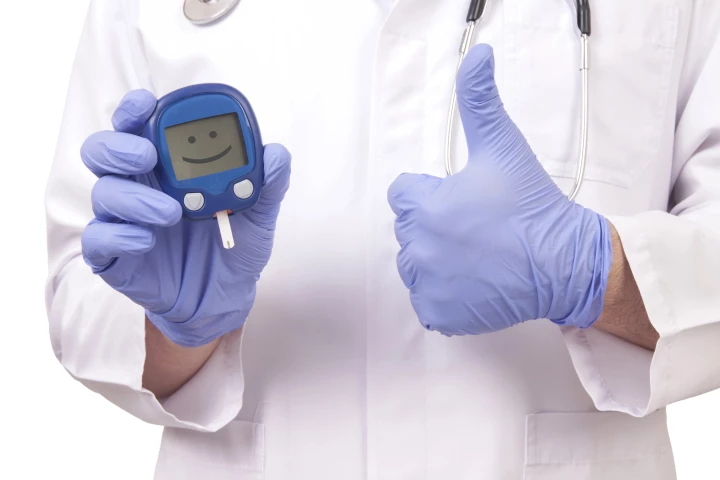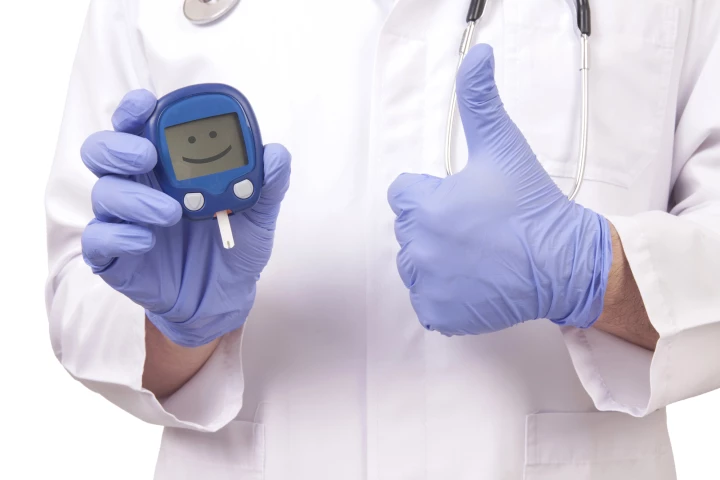Diabetic
-
A patient with type 1 diabetes has been functionally cured of the disease, requiring no insulin doses for over a year. The treatment involves growing and transplanting new insulin-producing cells from the patient’s own stem cells.
-
Implanting a pouch of pancreas cells under the skin of type 1 diabetics has enabled them to live without insulin injections for years according to the results of a clinical trial. It’s a big step towards a functional cure for the disease.
-
Clinical trials of a new, once-a-week insulin have shown that it controls blood sugar as well as daily injections of an existing long-acting insulin in type 1 and type 2 diabetics. This means that some diabetics may soon not need to inject themselves as often.
-
The degree to which a diabetic’s blood sugar levels drop in response to physical activity depends on the exercise and gender, according to new research.
-
People living with diabetes might have a new hope. Scientists have tested a new drug therapy in diabetic mice, and found that it boosted insulin-producing cells by 700% over three months, effectively reversing their disease.
-
Diabetics sick of daily injections may have renewed hope for a less invasive alternative. Scientists at the University of British Columbia (UBC) have developed a new delivery method for insulin where users just place a few drops under their tongue.
-
A promising new drug could prevent and even reverse the onset of type 1 diabetes. The experimental monoclonal antibody drug was found to act like a shield to protect insulin-producing cells from damage and even extended lifespan in some cases.
-
While it might run counter to conventional wisdom, if you are lactose intolerant, you might want to drink some milk every day to ward off diabetes. So says a new study that looked at a genetic variant involved in the effect.
-
An oral insulin that has proven effective at reducing blood glucose and avoiding hypoglycemia in mice, rats, and baboons is set for human clinical trials as soon as 2025. The researchers are hopeful the drug be available to all in a few years.
-
Scientists have discovered a new mechanism for how type 2 diabetes takes hold, and demonstrated in mice that blocking a particular enzyme could open a new avenue of treatment for the disease.
-
While it's known that regular walking can help you ward off diabetes, a new study attempts to quantify the speed that maximizes the exercise's benefits. It turns out a little extra pep may go a long way toward cutting your risk of the disease.
-
Managing diabetes usually involves regular shots, but soon patients might only need injections a few times a year. Stanford has developed a hydrogel-based delivery system that slowly releases drugs over months to control diabetes and even weight.
Load More











